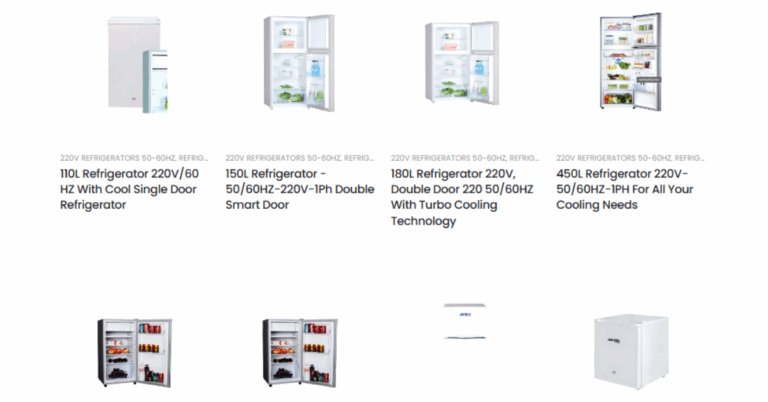CRM For Commercial Real Estate 2025
In the ever-evolving world of property management and investment, CRM For Commercial Real Estate has emerged as a game-changer. As the commercial real estate sector grows in complexity and competitiveness, professionals need more than spreadsheets and outdated contact lists. They require powerful tools to manage leads, nurture relationships, track deals, and improve collaboration across teams. A dedicated CRM tailored for commercial real estate not only simplifies these processes but also drives growth and maximizes profitability.
What is CRM For Commercial Real Estate?
CRM for commercial real estate is a Customer Relationship Management platform specifically designed to cater to the needs of commercial property developers, brokers, leasing agents, and real estate investment firms. Unlike generic CRM systems, this industry-specific solution helps manage property portfolios, investor relationships, tenants, and transactions, all within one centralized platform.
With CRM for commercial real estate, users can automate communication, track deal flow, manage leasing activities, and monitor property performance—all while improving customer satisfaction and retention.
Importance of CRM For Commercial Real Estate
The commercial real estate industry deals with long sales cycles, complex negotiations, and high-value transactions. In such a demanding environment, CRM for commercial real estate is essential for several reasons:
-
Streamlined Deal Management: Track every deal from inquiry to closure, ensuring no opportunity slips through the cracks.
-
Centralized Communication: Maintain a clear communication trail across teams and with clients, tenants, and investors.
-
Lead Nurturing: Automate follow-ups to keep prospects engaged and informed throughout the decision-making process.
-
Property Insights: Gain detailed insights into asset performance, occupancy rates, and lease renewals.
-
Client Retention: Deliver a personalized experience to build trust and retain high-value clients.
Key Features of CRM For Commercial Real Estate
To truly deliver value, a CRM for commercial real estate must go beyond basic contact management. It should offer industry-specific tools and integrations that help professionals stay ahead of the competition. Some of the most valuable features include:
-
Lead and Pipeline Management: Visualize the sales funnel and monitor the status of every lead, prospect, and deal.
-
Property Database: Maintain a centralized listing of properties with detailed information such as location, size, pricing, and availability.
-
Lease Tracking: Monitor lease expirations, renewals, and terminations to reduce vacancy and maximize occupancy.
-
Document Management: Store and access critical documents like lease agreements, financial reports, and marketing collateral.
-
Automated Workflows: Set up triggers for follow-ups, task assignments, email reminders, and deal updates.
-
Reporting and Analytics: Generate customized reports on sales performance, lead sources, conversion rates, and more.
How CRM For Commercial Real Estate Enhances Lead Management
Lead management is one of the cornerstones of success in commercial real estate. With CRM for commercial real estate, brokers and agents can capture, qualify, and nurture leads more effectively. Here’s how:
-
Capture Leads Automatically: Integrate your CRM with websites, landing pages, email campaigns, and property portals to capture leads instantly.
-
Lead Scoring: Prioritize high-value prospects based on engagement, budget, location preferences, and more.
-
Follow-Up Automation: Schedule follow-up emails, calls, and meetings without manual tracking.
-
360-Degree View: Access complete lead profiles with interaction history, preferences, and communication records.
This systematic approach ensures no lead is forgotten and maximizes the chances of converting prospects into clients.
Managing Relationships With Investors and Tenants
Investor and tenant relationships are vital for long-term success in commercial real estate. A CRM for commercial real estate empowers firms to nurture these relationships by:
-
Tracking investor contributions, communication history, and preferences
-
Sending regular updates on project milestones and returns
-
Managing tenant inquiries, maintenance requests, and lease renewals
-
Offering personalized service to build loyalty and satisfaction
These functions lead to increased transparency, trust, and long-term collaboration.
CRM For Commercial Real Estate and Marketing Automation
Marketing plays a crucial role in filling vacancies, attracting buyers, and generating leads. A powerful CRM for commercial real estate often includes or integrates with marketing automation tools. These features help professionals:
-
Run targeted email campaigns based on location, investment type, or budget
-
Schedule newsletters with property updates and market trends
-
Track engagement through open rates, click-throughs, and responses
-
Retarget cold leads with personalized messaging
Marketing automation combined with CRM creates a cohesive strategy that increases visibility and conversions.
Benefits of CRM For Commercial Real Estate
The adoption of CRM for commercial real estate brings a host of operational and strategic benefits to professionals and organizations alike:
-
Improved Productivity: Automate repetitive tasks, allowing teams to focus on deal-making.
-
Better Collaboration: Share data and updates across departments for improved efficiency.
-
Increased Revenue: Close deals faster through streamlined lead nurturing and tracking.
-
Data-Driven Decisions: Use analytics to evaluate property performance, team effectiveness, and market trends.
-
Scalability: As your property portfolio or team grows, the CRM scales to meet increasing demands.
Use Cases of CRM For Commercial Real Estate
Professionals across the commercial real estate sector use CRM solutions for a wide variety of functions:
-
Brokers managing large pipelines of prospects and listings
-
Leasing agents tracking unit availability and tenant communication
-
Developers coordinating with investors and marketing teams
-
Asset managers monitoring lease expirations and renewals
-
Investment firms analyzing deal flows and ROI metrics
From initial inquiry to long-term property management, CRM for commercial real estate covers the entire lifecycle.
Choosing the Right CRM For Commercial Real Estate
Not all CRMs are created equal. When selecting a CRM for commercial real estate, consider the following factors:
-
Customization: Can the system be tailored to match your unique workflows?
-
Integration Capabilities: Does it connect with property management software, financial tools, and communication platforms?
-
User Experience: Is the interface intuitive for brokers, agents, and managers?
-
Mobile Access: Can your team access the CRM on the go?
-
Reporting and Analytics: Does the CRM offer meaningful insights into performance?
Solutions like Plumb5 deliver end-to-end CRM platforms that are purpose-built for commercial real estate, ensuring robust functionality and scalability.
The Future of CRM For Commercial Real Estate
The future of CRM for commercial real estate is driven by artificial intelligence, automation, and data intelligence. Advanced CRMs are already incorporating features like:
-
AI-powered Lead Scoring: Predict which prospects are most likely to convert
-
Smart Alerts: Get real-time notifications on deal updates, lease expirations, and follow-ups
-
Chatbots and Virtual Assistants: Automate client interactions and property inquiries
-
Predictive Analytics: Forecast trends, rental income, and investment opportunities
With these advancements, CRM systems will not only manage relationships but also drive strategic decision-making and growth.
FAQs on CRM For Commercial Real Estate
What is the role of CRM in commercial real estate?
CRM helps manage client, investor, and tenant relationships, automate lead follow-ups, track deals, and streamline property management.
Can CRM track lease expirations and renewals?
Yes, CRM for commercial real estate includes lease management tools to monitor lease timelines and trigger alerts for renewals.
Is CRM only useful for large real estate firms?
No, CRMs are scalable and beneficial for small firms, individual brokers, and large enterprises alike.
How does CRM improve lead conversion in real estate?
CRM automates follow-ups, provides lead insights, and keeps track of all interactions, significantly improving conversion rates.
Can CRM integrate with property listing websites and ERPs?
Most modern CRMs offer seamless integration with listing platforms, ERP systems, and email marketing tools.
Does CRM provide reporting features?
Yes, commercial real estate CRMs provide dashboards and reports on pipeline performance, lead sources, sales trends, and more.
How secure is CRM data?
Reputable CRM providers use encrypted servers, access controls, and compliance protocols to ensure data security.
Conclusion
The commercial real estate industry demands precision, responsiveness, and strategic thinking. By adopting a CRM for commercial real estate, professionals can gain full visibility into their operations, streamline communication, and drive higher returns on every transaction. With powerful automation, data management, and relationship tracking, CRM is no longer a back-office tool—it’s the core of a future-ready commercial real estate business.







